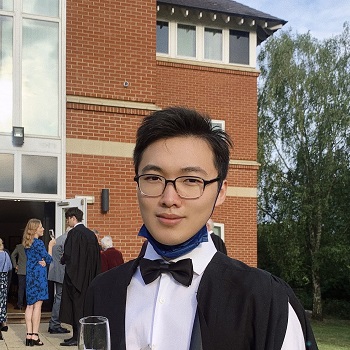Xudong Ke Lin, xk215@cam.ac.uk
Spain
Physics, Robinson College
PhD thesis: Multi-species Simulations of Plasmas for use in Magnetically Confined Fusion.
Research interests:
1. Finite Volume Methods (FVM).
2. Magnetohydrodynamics (MHD).
3. High Performance Computing (HPC).
4. Data Science.
My PhD focuses on developing numerical techniques to efficiently and accurately model plasmas for use in nuclear fusion. The approach focuses on the multi-species or multi-fluid plasma equations, which offer a realistic framework in which to consider the effects of electrons and ions individually, yet has so far been relatively unexplored in the numerical plasma physics community. This could enhance current simulation work for fusion reactors, since it can incorporate a lot of physics that are not possible to include in simpler MHD models. The main barrier to the usage of these techniques is the increased computational cost of the multi-species model. Therefore, the aim of the project is to explore and/or develop different methods to reduce the computational costs in the FVM framework, considering novel numerical techniques, mathematical reformulation of the underlying equations and advanced computational meshing strategies.
Who or what inspired you to pursue your research interests?
I was inspired to pursue my research interests by my undergraduate degree, in Theoretical Physics, where I learnt many computational methods that can be used in science. The interest in computational physics led me to pursue the MPhil in Scientific Computing at Cambridge, where I learnt more numerical techniques and as part of my master thesis, I started working and developing new numerical methods for plasma simulations. One important and fascinating application is nuclear fusion, and fusion simulations can be used as a predictive tool to control operating conditions and are important for understanding the physics inside a nuclear reactor.

